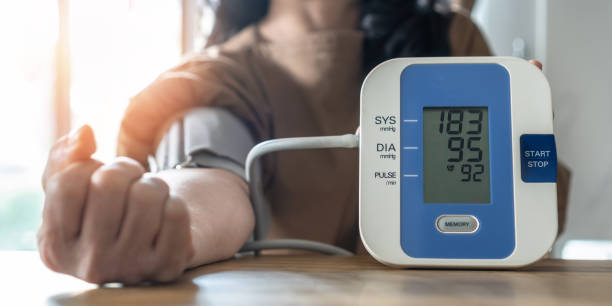Your Diastolic Pressure Is Just As Important

Normal Systolic Blood Pressure – Increased Diastolic Blood Pressure
Normal Systolic Blood Pressure but increased Diastolic Blood Pressure, may not be as rare as some persons may think. In fact for many – this is one of the first signs of concern and one of the first indicators that we should jump into action and take charge of our overall health. Persons tend to primarily focus on the Systolic Numbers moreso, however the Diastolic is just as important as this is that subtle indicator between heartbeats.
Blood pressure is a measure of the force exerted by blood on the walls of arteries.
It is expressed in two numbers, systolic and diastolic. The systolic number is the higher of the two and represents the pressure when the heart contracts. The diastolic number is lower and represents the pressure between heartbeats.
If you take your blood pressure and realize the diastolic number is high, you may be wondering if you have a problem. In this article we will go over what this means!
What does this mean? What can cause this?
If your systolic number is normal, but your diastolic number is high, this is called isolated diastolic hypertension. This means that the pressure in between heartbeats (diastolic) is too high. This can be caused by a variety of things including:
- Heart disease
- High blood pressure
- Kidney disease
- Atherosclerosis (a build up of plaque in the arteries)
- Sleep apnea
If you have a high diastolic reading it does not mean you definitely have one of these diseases, but it is important to see a doctor and find out what might be causing it. Treatment will depend on the underlying cause.
How do we manage as well as what can be done to bring it back to normal?
If you are diagnosed with isolated diastolic hypertension, your doctor will likely recommend lifestyle changes such as losing weight, eating a healthy diet, and getting more exercise. You may also need medication to help lower your blood pressure.
Remember that if you have any concerns about your blood pressure, it is important to see a doctor. High blood pressure can lead to serious health problems if left untreated!
What is normal blood pressure? How do we maintain this…?
Normal blood pressure is 120/80 millimeters of mercury (mmHg).
- To maintain normal blood pressure, you should eat a healthy diet, get regular exercise, and avoid smoking and excessive alcohol.
- If you have high blood pressure, lifestyle changes are essential for treatment.
See your doctor if you have any concerns about your blood pressure! 120 systolic over 80 diastolic is the range for “normal” blood pressure.
What this means is that when your heart contracts (systolic), the number reading on the machine will be at least 120. When your heart relaxes in between beats (diastolic), it cannot go above 80. Anything lower than 120/80 would be below “normal.”
What exercises can be done to make this happen? Can we adjust our diet? How?

- The exercises you can do depends on your current physical condition. If you are generally healthy and just need to lose a few pounds, a brisk walk every day should do the trick.
If you have more weight to lose, or if you are not in good shape, you may need to start with something slower like walking two blocks instead of four.
Swimming is also a great exercise for people with high blood pressure because it is gentle on the joints and easy on the heart.
As for diet, there are many things you can do to lower your blood pressure without cutting out all the foods you love!
Try incorporating some of these changes:
- Eat less salt
- Eat more fruits and vegetables
- Choose lean protein sources like fish or chicken instead of red meat
- Avoid processed foods
- Limit alcohol intake
Remember: If you think your blood pressure is high or if you have any concerns about it at all, make sure to see your doctor right away. There are many things we can do to help lower our blood pressure naturally without having to rely on medication forever!









